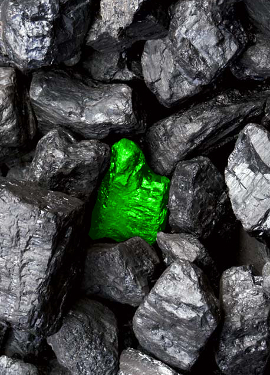$4 million for anti-renewable posting
 The Abbott government has given $4 million to the University of Western Australia so that renewable energy investment sceptic Bjørn Lomborg can spread his message.
The Abbott government has given $4 million to the University of Western Australia so that renewable energy investment sceptic Bjørn Lomborg can spread his message.
Dr Lomborg was behind the Danish “Copenhagen Consensus Center” until it lost funding and was closed in 2012.
Now, the Federal Government will spend millions over four years to “bring the Copenhagen Consensus Center methodology to Australia,” according to an Education Department spokesperson.
Lomborg uses cost-benefit analysis to advise governments on how to get the be best social value for their money.
The group considers policies to address climate change as low-priority.
Lomborg and former colleagues say that the seriousness of the issue has been overstated, and that subsidising a shift to renewable energy does not make economic sense.
He believes governments should stop spending as much foreign aid for climate projects, and instead focus on getting cheap fossil fuel supplies for poor countries.
Lomborg has also been appointed to advise the Abbott government on foreign aid, as part of a 14-person international reference group under the banner “Innovation Xchange”.
The group wants to encourage more private sector involvement in delivering aid.
Some commentators believe that Dr Lomborg’s new links with Australia have been set up to back the moves of a Federal Government that has no interest in renewable energy, ignores the future cost of climate change, and wants to minimise foreign aid.
The University of Western Australia has been criticised for the appointment, but says that the money offered was only for this specific use.
“As we all know it is difficult to get federal dollars to flow across the Nullabor,” University of Western Australia vice-chancellor, Prof Paul Johnson, told Guardian Australia.
“Bjørn Lomborg was in WA last year and called in at the university. He had separate conversations with the [Federal Education] Minister … I have been having conversations about this for six or seven months.”
Dr Lomborg explained in a podcast last year that his consensus centre was looking for a new home, after the Danish government cut its funding.
“We used to be funded by the Danish government, from 2004 until 2012,” he said.
“One of the things that the Danish government did not like was that we said; ‘Yes global warming is real, it is a challenge, but the typical way that we solve it turns out to be a pretty poor investment of resources.’
“When there was a change of governments here we went from a centre-right to a centre-left government, they actually cut off our funding.
“We moved to the US where we get funding from private individuals and we’re trying to find a long-term solution for actually getting funding. So we’re a … nonprofit in the US.
“We used to have a budget of about $2m a year. Right now, we probably have a budget of a little more than $1m a year. And we get it from private donations.
“With that said, almost all of them [the donors] have wanted to remain anonymous.
“There are a few like the Kaufman Foundation, for instance, who have accepted to say that they’ve given money to us.
“We’ve also got money from New Ventures Foundation, from the Randolph Foundation and from Rush Foundation.”







 Print
Print